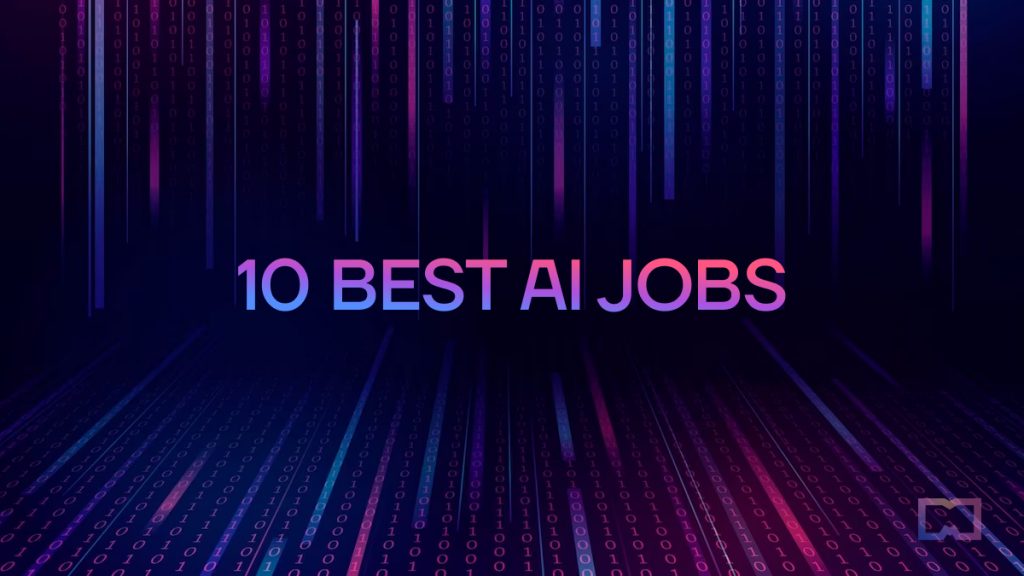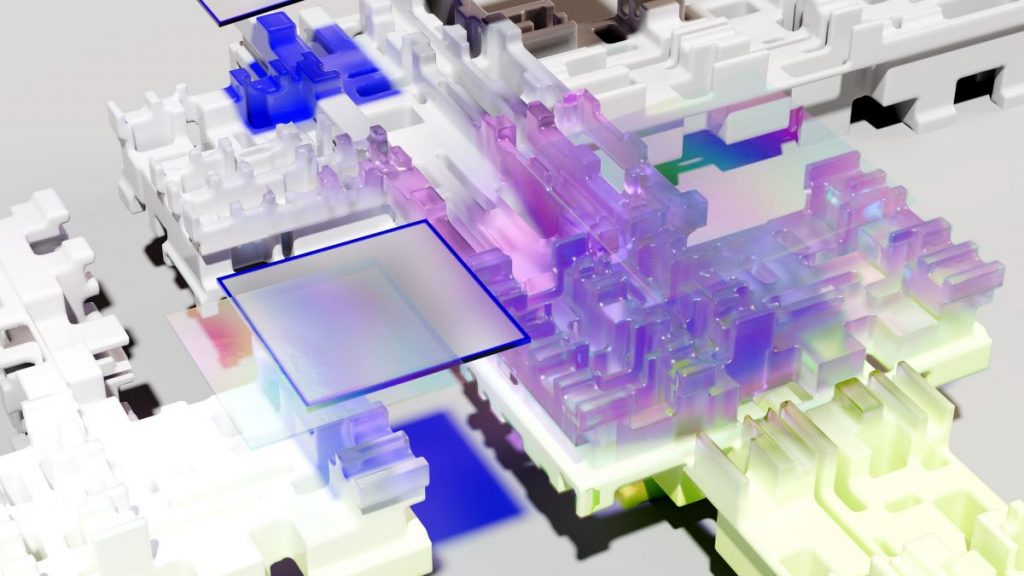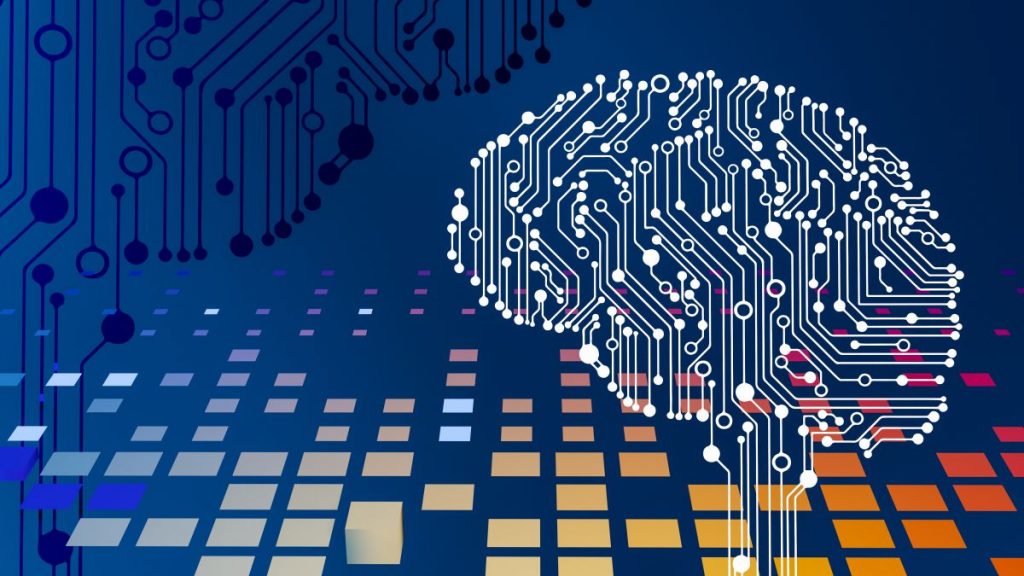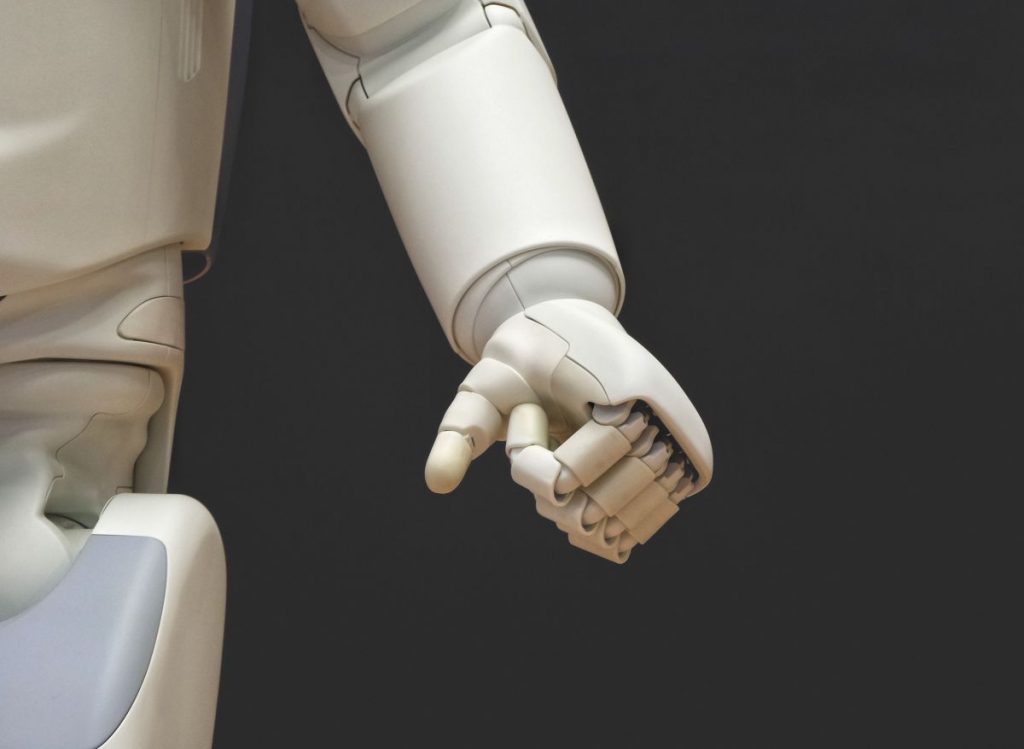10 Best Artificial Intelligence Jobs

In Brief
This article explores the 10 best Artificial Intelligence professions available today.
The list includes Machine Learning Engineer, Artificial Intelligence Engineer, Data Scientist, Computer Vision Engineer, AI Research Scientist, Natural Language Processing (NLP) Engineer, Robotics Engineer, Deep Learning Engineer, AI Product Manager, and AI Ethics Specialists.

Artificial Intelligence has been a hot topic in recent years. As OpenAI and other AI-focused companies introduce innovative products, the world adopts artificial intelligence tools for daily life and work. AI’s impact on various industries is becoming increasingly apparent.
Thanks to the rapid development of the industry, there is a growing demand for skilled professionals who can develop, implement, and manage AI systems. This article explores some of the best AI professions available today, including Machine Learning Engineer, Artificial Intelligence Engineer, Data Scientist, Computer Vision Engineer, AI Research Scientist, Natural Language Processing (NLP) Engineer, Robotics Engineer, Deep Learning Engineer, AI Product Manager, and AI Ethics Specialists.
Machine Learning Engineer

A Machine Learning Engineer is a specialized software engineer who designs, builds, and deploys machine learning systems. Their primary responsibility is to develop and implement algorithms and models that enable machines to learn and make data-based decisions. The job of a Machine Learning Engineer involves working with large datasets, data preprocessing, and data modeling. In addition to data science skills, a Machine Learning Engineer is required to have strong programming skills, advanced knowledge of mathematics, a deep understanding of machine learning concepts, and familiarity with standard and customized algorithms.
In 2021, a Machine Learning Engineer’s median salary was $131,000.
Artificial Intelligence Engineer

Artificial Intelligence Engineers develop and implement AI systems and work with technologies like machine learning, natural language processing, and computer vision. The job includes developing AI models, data ingestion, and data transformation infrastructure. An AI Engineer also performs statistical analysis and sets up and manages the infrastructure for AI product development.
The differences between Artificial Intelligence Engineer and Machine Learning Engineer are the tools that the professionals use to solve problems. AI Engineers mostly use software development tools, while ML Engineers use algorithms and data tools.
The average salary of an Artificial Intelligence Engineer is $105,290, according to Glassdoor.
Data Scientist

The job of a Data Scientist includes collecting and processing large datasets, analyzing and interpreting data to identify patterns and trends, developing predictive models and algorithms to make data-driven decisions, and communicating insights and recommendations to stakeholders. Data Scientists possess a strong background in programming with a focus on data warehousing and mining, statistics and linear algebra, and modeling.
The average base salary of a Data Scientist is $127,500, according to the Berkley School of Information.
Computer Vision Engineer

A Computer Vision Engineer is a professional who works with visual data. The data might be digital signals, video feeds, or analog images. The job of a Computer Vision Engineer includes enhancing images, searching images, moderating content, and developing facial recognition tools. Computer Vision Engineers develop, deploy, and maintain computer vision algorithms and hardware; develop automated vision algorithms; collect and optimize analytics; propose efficient solutions for real-world problems; develop technical documentation; and manage computer vision projects.
A Computer Vision Engineer earns a median of $126,830 as of May 2020.
AI Research Scientist

An AI Research Scientist is a professional who specializes in developing new artificial intelligence models, algorithms, and techniques. These scientists work on cutting-edge research in the field of AI to improve the performance of existing models or create entirely new AI applications. Overall, AI Research Scientists create algorithms that solve problems in innovative ways or improve already existing solutions. They must understand how humans think and develop agents that interact with people in online spaces. An AI Scientist must be familiar with programming languages and have experience analyzing large amounts of data from different sources. The job also requires experience with machine learning, neural networks, and deep learning, as well as the development of large-scale, distributed systems for training models.
According to Glassdoor, the average salary for an AI Scientist is $112,932.
Natural Language Processing Engineer

Natural Language Processing Engineers develop algorithms and models that enable machines to understand and interpret human language. They work on applications like chatbots, language translation, and speech recognition. The job requires experience in statistical analysis, programming languages, and knowledge of machine learning methods and text representation techniques. NLP Engineers must also have experience with machine learning frameworks and libraries.
Natural Language Processing Engineers earn an average of $134,096, according to ZipRecruiter.
Robotics Engineer

A Robotics Engineer is a professional who designs, builds, tests and maintains software that controls robotic systems. Robotics Engineers conduct research and create robots that can perform tasks that are dangerous or difficult for people. The job requires knowledge of mathematics, complex problem-solving skills, decision-making skills, persistence, and communication capabilities.
As of February 2023, a Robotics Engineer’s average salary is $104,643, according to Salary.com.
Deep Learning Engineer

A Deep Learning Engineer is an expert in the design and implementation of learning algorithms. The job includes the development and maintenance of machine learning models, and engineers are involved in engineering and modeling activities, as well as deployment. A Deep Learning Engineer must have experience gathering, categorizing, examining, and cleaning data.
The median salary of a Deep Learning Engineer is $122,780, according to Glassdoor.
AI Product Manager

AI Product Managers use artificial intelligence, machine learning, and deep learning to develop, improve, and shape products. AI Product Managers play a critical role in ensuring that the products they manage are ethical, responsible, and compliant with regulatory requirements. The role requires a unique combination of technical expertise and business skills, such as product management and marketing. In addition, they must have strong communication and collaboration skills.
As of March 2023, the average compensation of an AI Product Manager is $130,416, according to Glassdoor.
AI Ethics Specialist

An AI Ethics Specialist is a professional responsible for ensuring that the development and deployment of AI and machine learning systems are ethical and aligned with societal values. This includes identifying potential ethical issues and risks associated with the use of AI and working to develop strategies and policies that can mitigate these risks. An AI Ethics Specialist must possess technical skills like knowledge of machine learning algorithms and data analysis, ethical expertise, and strong communication skills.
The salary of an AI Ethics Specialist ranges between $79,000 and $189,000, according to ZipRecruiter.
How to learn AI
If you are interested in learning about AI and its applications, there are several ways to get started. AI university programs could be a great option if you are considering a career in the AI field. Among the top ten universities that offer undergraduate and graduate programs are Carnegie Mellon University, the Massachusetts Institute of Technology, and Stanford University.
Artificial intelligence-related courses might also be a great way to learn AI. The option is suitable for individuals that do not want to get a degree in this field. As of today, there is a wide range of AI courses available. Individuals can choose from free or paid courses and can learn online or in-person. The courses cover a variety of topics, ranging from the basics of machine learning and deep learning to more specialized areas of AI.
Interested individuals can also consider artificial intelligence books. This is a great option for those willing to learn AI with a more self-directed and comprehensive approach.
FAQ
Artificial Intelligence (AI) is the simulation of human intelligence processes by computer systems and other machines.
Getting a job in Artificial Intelligence typically requires a combination of relevant education, skills, and experience.
Working in the artificial intelligence field requires a diverse set of skills and knowledge, depending on the specific role and industry. The most commonly required skills include programming, mathematics and statistics, machine learning, computer vision, and problem-solving.
The United States, India, Germany, Canada, the United Kingdom, and China are the best countries for artificial intelligence jobs.
Conclusions
The field of artificial intelligence is growing at a rapid pace. The demand for professionals who can design, build, and manage AI-based systems also grows. As AI continues to transform industries and create new opportunities, these jobs are likely to become even more important and in demand in the years ahead. Whether you are an experienced professional looking to transition into the field of AI or a student considering a career in this industry, there are plenty of opportunities available for those with the right skills and expertise.
Read related posts:
Disclaimer
In line with the Trust Project guidelines, please note that the information provided on this page is not intended to be and should not be interpreted as legal, tax, investment, financial, or any other form of advice. It is important to only invest what you can afford to lose and to seek independent financial advice if you have any doubts. For further information, we suggest referring to the terms and conditions as well as the help and support pages provided by the issuer or advertiser. MetaversePost is committed to accurate, unbiased reporting, but market conditions are subject to change without notice.
About The Author
Valeria is a reporter for Metaverse Post. She focuses on fundraises, AI, metaverse, digital fashion, NFTs, and everything web3-related. Valeria has a Master’s degree in Public Communications and is getting her second Major in International Business Management. She dedicates her free time to photography and fashion styling. At the age of 13, Valeria created her first fashion-focused blog, which developed her passion for journalism and style. She is based in northern Italy and often works remotely from different European cities. You can contact her at [email protected]
More articles

Valeria is a reporter for Metaverse Post. She focuses on fundraises, AI, metaverse, digital fashion, NFTs, and everything web3-related. Valeria has a Master’s degree in Public Communications and is getting her second Major in International Business Management. She dedicates her free time to photography and fashion styling. At the age of 13, Valeria created her first fashion-focused blog, which developed her passion for journalism and style. She is based in northern Italy and often works remotely from different European cities. You can contact her at [email protected]



















































